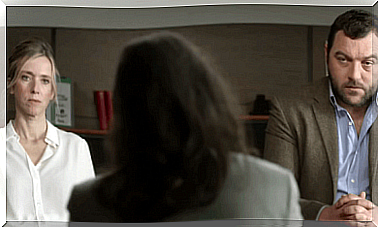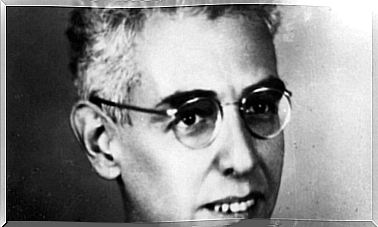Be Responsible For Yourself, It Sets You Free

You are responsible for yourself and you are responsible for your actions. You take responsibility for the consequences of your actions, words and decisions at all times.
No one other than your mind and heart can tell you what to do or not to do every moment. It makes you a free person. It enables you to build your own destiny.
Viktor Frankl said that freedom is inconceivable without a certain sense of responsibility. Indeed, it is an obvious truth that we often tend to overlook, however.
Many of us see ourselves as mature and accomplished people. Men and women capable of fulfilling the objectives that we have set for ourselves. However, there is a phenomenon that we see all too often.
We like to blame others for causing our problems, failures and suffering. Often even, our own unhappiness is only the result of this dependent relationship from which we dare not escape.
For example: “My insecurity and my fears are due to the authoritarian education that my parents gave me in my childhood.” Could this reason not mask the real problem, however? Namely, the fact that the person has not yet faced and solved the issues related to this education to become the person they want to be.
We blame others for difficulties that we should actually face if we were a little more responsible. As psychotherapist Albert Ellis said, the best years of our lives are when we finally accept that our problems are in fact our own.
Nothing is the fault of our mother, the environment or politics. When we realize this, then we take control of our own destiny …

When you are responsible for yourself, your life changes
Responsibility is a valuable psychological skill. It brings security to those who assume it day after day.
It lives in people committed to themselves who act according to their values. These people who are fully aware of their mistakes and modify their actions in order to learn, to continue to progress and to develop.
There are those who assume this principle very early on thanks to their education or their personality. But there are also those who have not yet assumed this vital skill. This is an aspect often addressed in therapy.
A common example in therapy: if there is something that is really difficult for a patient to understand, it is certainly the need to stop focusing so much on what the people around them are doing or not doing. Rather, he needs to focus more on himself.
“How do you do that?” Patients often ask the hour therapist. “There is my boss who constantly stresses me out. There is my stepfather, my narcissistic friend and my teenager who always asks me for money and does nothing at home ”.
As we can guess, sometimes it is easier to focus on the outside and blame for our unhappiness on others. But what are we doing to manage all these conflicts? Is our role only to be a “passive victim”? Obviously not.
You are responsible for yourself and you have an obligation to react to what happens to you
The word “ responsibility ” comes from the Latin “ responsum ” which means “to respond to something or to someone” . In addition, from a psychological point of view, this skill is directly linked to an important concept: commitment.
Therefore, being responsible for yourself involves learning to make decisions that promote well-being and personal growth. And, at the same time, take responsibility for the consequences of our actions and know how to react to what is happening around us without blaming others.
Nor should we wait for others to solve our problems. If there is an essential objective in any psychological therapy, it is to achieve that the person commits to their own change and that they take charge of themselves knowing how to act without fear.
It is a complex process, it is true. But when we do, something happens: we feel free.

When you are in charge of yourself, you are free to create the life you want
Abraham Maslow defined the sense of responsibility as an essential dimension within the pyramid of human needs. In his book The Man Who Fulfills Himself, he claims that if you are responsible for yourself, you will be able to achieve your goals and achieve yourself.
It’s all about reaching that peak where you can feel good about yourself, and good with your surroundings. To do this, you must take into account certain aspects:
- You are free to choose the type of life you want. But to get there, you need to focus all of your resources, energy, and hopes on yourself. No one has an obligation to help or facilitate your task. This responsibility is yours.
- Set yourself daily goals and then set out to conquer them. Every day you have to prove to yourself that you are capable of working for your own well-being and that of those you love.
- If something is bothering you, causing you to lose your mind, and making you feel like you’re in a fog, then go for it. Do it as soon as possible. Don’t let the time pass and don’t wait for others to do it for you.
- Be honest at all times and in all circumstances with yourself but also with others.
- Accept your mistakes and learn from them.
- Commit yourself every day to improve yourself, to be more independent. Be brave to face what you fear. Be assertive in standing up for yourself, humble so you can learn, respectful and caring with yourself and those around you, even if sometimes they don’t act the way you would like them to.
In short …
Learning to be responsible for yourself takes time and requires constant commitment . However, once you get there, the feeling of freedom is absolute. So get to work now.









